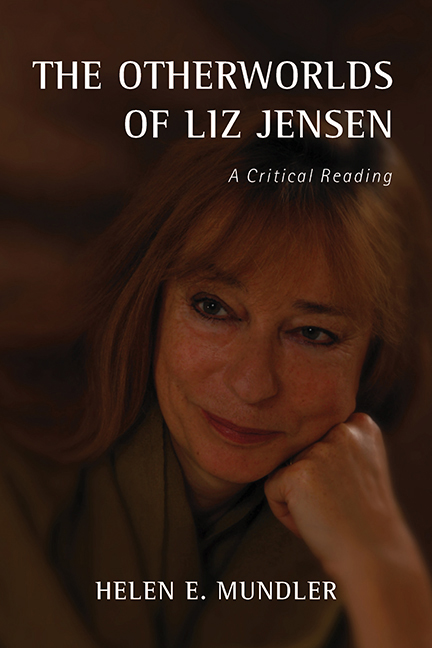Book contents
- Frontmatter
- Dedication
- Contents
- Acknowledgements
- List of Abbreviations
- Introduction
- 1 Egg Dancing: Paving the Way for Otherworlds in Time and Space
- 2 Ark Baby and the Return to the Nineteenth Century
- 3 Island Life: The Pure “Ustopia” of The Paper Eater
- 4 Liz Jensen's Murder Mysteries
- 5 From Family Romance to the Detective Novel
- 6 New Rules, New Otherworlds: Jensen's “Third Wave”
- 7 Ecofiction, Rapture Fiction
- 8 The Uninvited: The Most Radically “Other” World to Date
- Conclusion
- Notes
- Bibliography
- Index
3 - Island Life: The Pure “Ustopia” of The Paper Eater
Published online by Cambridge University Press: 09 May 2017
- Frontmatter
- Dedication
- Contents
- Acknowledgements
- List of Abbreviations
- Introduction
- 1 Egg Dancing: Paving the Way for Otherworlds in Time and Space
- 2 Ark Baby and the Return to the Nineteenth Century
- 3 Island Life: The Pure “Ustopia” of The Paper Eater
- 4 Liz Jensen's Murder Mysteries
- 5 From Family Romance to the Detective Novel
- 6 New Rules, New Otherworlds: Jensen's “Third Wave”
- 7 Ecofiction, Rapture Fiction
- 8 The Uninvited: The Most Radically “Other” World to Date
- Conclusion
- Notes
- Bibliography
- Index
Summary
THE EVENTS OF THE PAPER EATER, like those of both the previous novels, are set in the few years around the millennium, a period that appears, as observed above, to be particularly propitious for speculative fiction. However, while Ark Baby spans several generations and reaches far into the past, with its reference to the Darwinian descent of humankind, and also into the future, with its vision of the disappearance of humankind, The Paper Eater traces a more telegraphic journey to apocalypse, since the foundation and collapse of Atlantican society in Jensen's third novel occur within less than a generation. Emphasis is on space rather than time, on geology rather than teleology, and on the setting up of an imaginary geography rather than an imaginary history.
Egg Dancing and Ark Baby both contain dystopian elements, the first in that it foregrounds the use of codified, monologic language in order to shore up the illusion of utopia, and the second in that it portrays a wave of mass infertility, the threat of the end of the human race, and so on. However, the particularity of The Paper Eater is that it is set exclusively in a utopian/dystopian chronotope, or what could be termed a “total utopia”: that is to say, the evocation of the utopian, in this case totalitarian, state, and the inevitable concomitant slide into dystopia, occupies the entire novel, and there is no text outside it. Atlantica, the setting of The Paper Eater, is in this sense an island made out of language. Intertextual references to works such as Nineteen Eighty-Four and The Handmaid's Tale, as well as the language used to describe Atlantica itself, combine not only to advance the plot but also to forge a critique of the language and ideology of ustopia, to continue to employ Margaret Atwood's term.
Rather than the parody and pastiche seen in Ark Baby, then, the dominant mode of the utopia in The Paper Eater is satire—that is to say that the commentary provided by the text on the world as it is derives from the closeness of the invented world to the real, and on the coincidence of the characteristics they share.
- Type
- Chapter
- Information
- The Otherworlds of Liz JensenA Critical Reading, pp. 67 - 92Publisher: Boydell & BrewerPrint publication year: 2016



